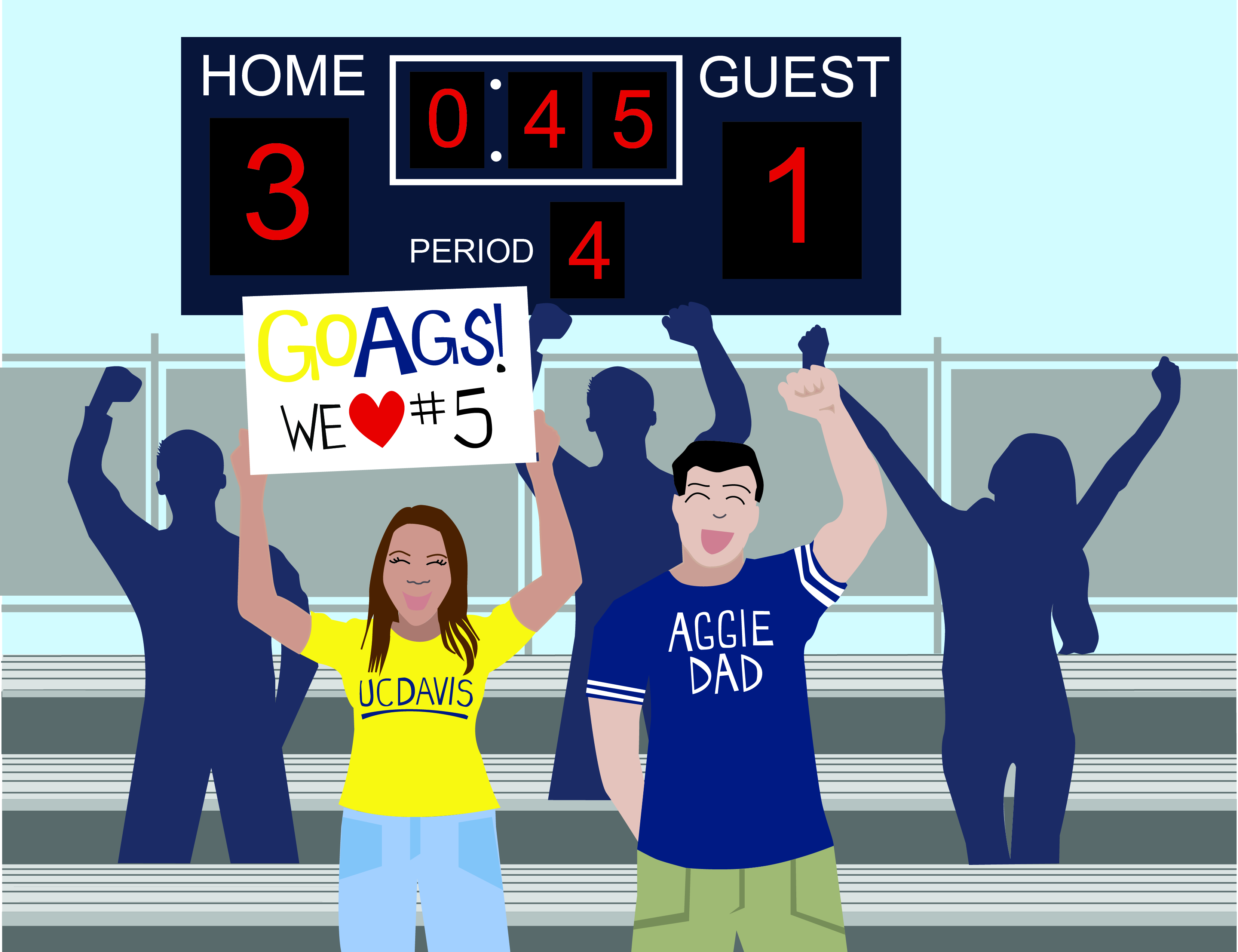
Parent’s are the reason most athletes get into sports, and, more importantly, are the reason they stick with it.
They say everything changes when you have children. Although I do not have any kids of my own, I can definitely speak to my parent’s dedication to my former career as a student-athlete.
I started swimming when I was just four years old, and for the next 14 years of my life, my parents carted me around and were active in my athletic endeavors. Luckily, or unfortunately in my father’s case, for I think he would have liked to brag about having a college-athlete son, my parents were let off the hook when I started college.
According to Sports and Fitness Industry Association, more than 26 million children aged six to 17 competed in team sports in the United States in 2014. The NCAA reports that around 420,000 student athletes 18 and older compete annually in the United States. So roughly 26.5 million children are active in sports, and many of their parents are too.
Being a parent of the student athlete that decides to continue on at the collegiate level is a full-time commitment. Financially, parents need to account for coaches, equipment, travel and time spent at sporting events or practices, not to mention any other children they might have.
“There is a financial component; you can dive in, but you don’t have to,” said Susie Kevorkian, mother to Tess Kevorkian, a junior defender on the lacrosse team. “We chose to because we think it means a lot, [especially] to our daughter — I know that.”
Spencer Creed, sophomore goalkeeper on the men’s water polo team, travels abroad to compete in heightened levels of competition, adding to the financial aspect of his sport.
“I’ve spent two summers in Italy, a summer in Montenegro. I spent a spring break in Hungary and Italy,” Creed said. “He [Creed’s father, Michael] was not [there] but he had absolutely no hesitation to send us [Creed or his siblings].”
One of the largest sacrifices for the parents of a student-athlete is their time.
“We used to be skiers, we are just literally getting back into skiing,” said David Neff, father of Courtney Neff, a senior midfielder on the lacrosse team. “That’s the piece that gets sacrificed pretty significantly, the vacations. A lot of the times it revolves around the sports, just spending a couple extra days wherever we go.”
However, some families do go all in for their athletically-talented children, and the sports they love. The Creed’s are one of these groups.
“He [Michael, Spencer’s father] would do everything in his power, him and my mother, to facilitate [our success],” said Creed. “It was just a constant necessity to be shuffling us around, and it’s all we really ever talk about, I mean water polo really is the main focus [of our entire family].”
Although parents enjoy watching their children compete, they often lose work-related time. In Christine Landry’s case, she had to drive two and a half hours to see her daughter, Elizabeth, play. Both of her children play – Elizabeth as a now-graduated attacker on the lacrosse team, and Chloe, who is a sophomore lacrosse player at Cal. Similarly, the Kevorkian’s left work early and had to take half a vacation day in order to watch their daughter. The Creeds travel just as much and try to make all the games that they can, going as far as Colorado to watch their children play.
Not only is there a financial cost to helping gifted athletes, but there are also some emotional sacrifices for parents. Sometimes, a game might not end favorably, and an athlete is forced to cope with a hard loss.
“It is hard, I don’t think [Chloe] wants to necessarily talk to us about it,” said Landry. “We would never give any feedback, but they would like us to be here.”
In fact, supporting a child after a loss may be the hardest part — there is no exact science for how to help them through the hard times, and seeing them hurt is rough.
“I think that’s just really it, you just support them, whether they had a great game or didn’t have a great game,” echoed Kevin Kevorkian, father of Tess. “It’s just, get over this game, there’s another one coming in a couple of days, focus on the positives, learn from whatever you didn’t do well, and move on from there.”
However this support is often exactly what these athletes need.
“[My father is] at most of our games, and if I’m having or had had a bad first quarter, first thing I’m going to do, or after a bad shot, I’m going to look up into the stands, I’m going to find him, and I know he’s going to be staring right at me,” recalled Creed. “Generally, what he does is he gives me a little gesture, he points to his eyes kind of like, ‘I’m watching you, eyes on the ball,’ and the other one is just a, ‘Calm down, relax.’”
One of the most noticeable aspects of the sacrifices that parents make is when they no longer have to make those sacrifices.
“You realize you have a lot more time,” Kevorkian said. “Like when she got here [UC Davis], or when they can drive, because you are not taking them to practice, picking them up from practice, taking them to games, all that weekend stuff.”
Overall, the sacrifices that most parents make to help their kids are ones that are often not considered sacrifices. They do lose out on potentially doing something that they might have otherwise wanted, but the benefits of seeing their child succeed surely outweigh any drawbacks.
“If you were to ask him, I don’t think he would say he’s sacrificed anything,” Creed said. “He wants to be at every game, it’s his pride and joy to come to this.”
Written by Aaron Sellers – sports@theaggie.org



